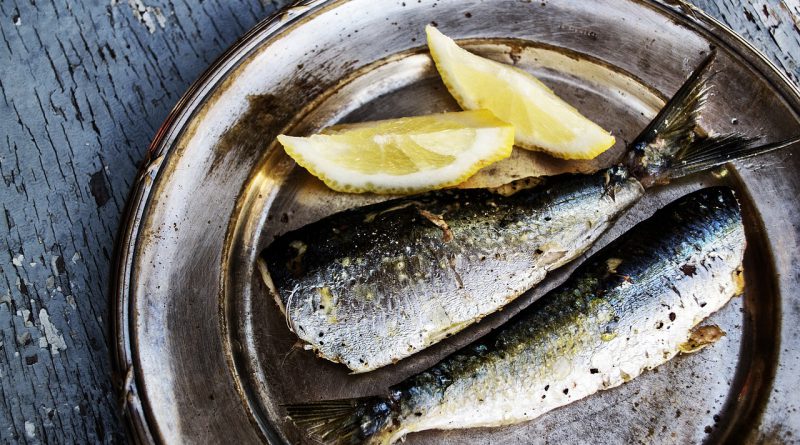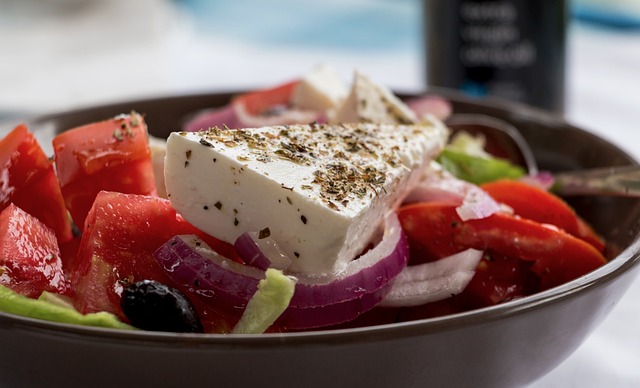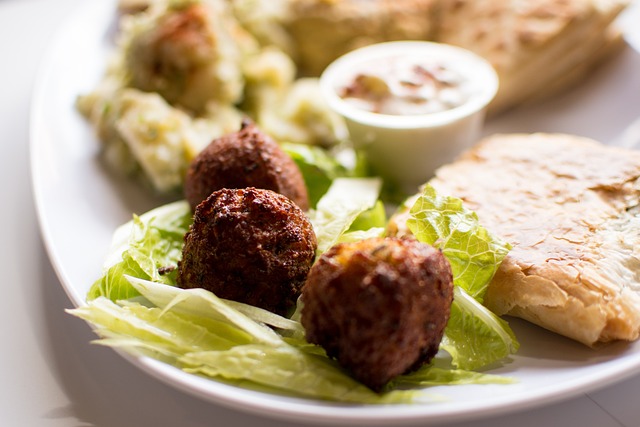
Greek cuisine
the basic ingredients
Greek cuisine has four secrets: fresh ingredients, the judicious use of herbs and spices, the famous Greek olive oil and its simplicity. Greek olive oil deserves special attention. Present in almost all Greek dishes , and in most of them in abundance, it is of an excellent quality and extremely healthy. Then there are the vegetables and spices. Thanks to the mild Greek climate , it is not necessary to use any fast growing system of vegetables. All vegetables grow naturally and are full of aroma and taste. You will be delighted by the flavor of Greek tomatoes, lettuce, carrots, onions, basil and garlic, not to mention the aroma of fresh fruit: grapes, apricots, peaches, cherries, melons, watermelons, etc.
The herbs, which most Greeks collect from the mountains or in the countryside, are renowned for their flavor, aroma and beneficial properties. Eating one of the many renowned Greek dishes , the aroma of oregano, thyme, mint or rosemary will inebriate you. Also don’t forget to try the Greek cheeses, and in particular the feta. Since lambs and goats in Greece are free to graze and the pastures are particularly rich in herbs, the meat of these animals has a unique flavor that is impossible to find anywhere else in the world. Fish from the Mediterranean is also far tastier than fish from the ocean. In the Aegean and Ionian the waters are crystalline, clear and full of fish.

Greek cuisine: the Greek philosophy of food
The moment of the day when the Greeks gather around the table to enjoy a meal consisting of several saucers accompanied by wine or Ouzo is a moment lived with devotion by all the inhabitants of this country. For the Greeks , sharing a meal with a friend, whether at home, in a restaurant or in a tavern , is an important social issue. The Greek word Symposium in ancient times meant to toast in company. The atmosphere in a typical Greek restaurant or tavern is very relaxed and informal. Food preparation on the other hand has its own sacred rules. A good person in housekeeping in Greece he is also a person who can cook. And a good cook can spend whole days preparing a meal for himself and his friends.

Greek cuisine: the atmosphere
Try drinking a glass of wine or ouzo , accompanied by a grilled octopus or any other Greek dish, sitting in the shade of a tree, in a small seaside tavern, in one of the Aegean islands. Then, when you are home again, try to repeat this experience by preparing the same dish and serving the same drink. No matter where you decide to enjoy them, you will soon discover that they don’t taste the same anywhere else. And don’t try it again, there is nothing wrong with the delicacy of your palate or your culinary skills. The experience of Greek cuisine, or the combination of what you eat and where you eat it, cannot be repeated, exported or duplicated. It is something you can only find, try and taste in Greece , as well as the blue of the Aegean sea.

Greece, in addition to being the birthplace of Dionysus, god of wine , is the land of origin of the first VQPRD wines in history. They were the wines of the islands of Chios and Thasos, renowned throughout the ancient world. For various historical and social reasons, as well as due to various natural disasters, the art of making wine was abandoned from the mid-nineteenth century until the early sixties. It was then that the ancient tradition of making wine was rediscovered and today it is possible to find many excellent Greek wines produced throughout the country on the market. When tasting a Greek wine we must keep in mind that it is the product of a different environment and of a grape of a different quality, unknown to lovers of Western wines. The greek wines are divided into 4 different categories: controlled designation of origin, superior quality designation of origin, local wines, table wines.
For more information go to the page: the wine of Rhodes
